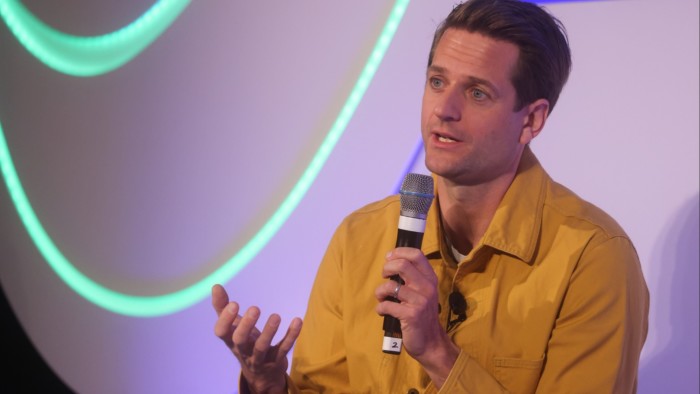Unlock the Editor’s Digest for free
Roula Khalaf, Editor of the FT, selects her favourite stories in this weekly newsletter.
Klarna should be the kind of story Europe dreams of. A continent without a contender to rival Google, Facebook or Apple has had a rare tech triumph with the Swedish buy now, pay later loan pioneer.
The back story of co-founder and chief executive Sebastian Siemiatkowski also speaks to the strengths of, if not Europe, then Sweden. Born in the country to immigrant parents who struggled after they arrived from Poland, Siemiatkowski now runs a company eyeing a big public market debut.
The only problem is that when Klarna lists, it won’t be on a European stock market. It will be in the US, where its main shareholder, a venture capital fund, is headquartered.
Sweden, home to old manufacturing names such as Volvo, Saab, and Atlas Copco, is one of Europe’s most dynamic start-up hubs. It has more unicorns — start-ups valued at more than $1bn — relative to its population size than almost any other European country. But it is alarming to see what has happened to many of them, not just Klarna. And that sends a broader warning to Europe and its business leaders, at present trying to stay relevant between the US and China.
For a long time, the inclination of Swedish tech start-ups was to sell out. Skype was bought by eBay in 2005, the maker of the Minecraft game Mojang was sold to Microsoft in 2014, mobile games developer King went to Activision Blizzard in 2016, and fintech iZettle was snapped up by PayPal in 2018.
Siemiatkowski and Daniel Ek, the co-founder and chief executive of Spotify, were different. Both wanted to build something big in Europe. “The important thing is, as Ingvar Kamprad [the founder of Ikea], said: most things are still not done,” Siemiatkowski told me in 2019, to justify resisting the temptation to sell out. Both Spotify and Klarna received takeover offers similar to the other Swedish start-ups before listing, say bankers in Stockholm.
But the biggest investors and venture capital funds were in the US, and over time that pull of its markets became irresistible. Spotify listed in New York in 2018. Now, Klarna is looking at something similar, filing listing documents in the US last week. Bankers and investors talk of a possible listing in the first half of next year that would value the company at up to $20bn. That would be a far cry from the $46bn Klarna was valued at in 2021 but better than the $6.7bn it achieved a year later in its last official fundraising round.
“There is just no question: the US has the customers, the market; it has the VC funds; it has the investors. If you are going to list, why would you choose Europe today?” asks one of the continent’s biggest industrialists, one of whose companies is examining a potential move from Europe to the US to try to boost its flagging share price.
There are legitimate questions about Klarna’s business model, and whether buy now, pay later causes consumers who can ill-afford it to take on extra debt. There are worries about Siemiatkowski’s management style, Klarna’s governance after a series of bitter boardroom fights and its acquisition record.
But there is equally no doubt that it is a deep blow to Europe when one of its promising young companies looks elsewhere for listing and growth. Sweden is viewed by some experts as having the deepest capital market in Europe, attracting large numbers of small- and mid-sized companies as well as having a large share of retail investors. But just five of the 30 leading companies listed in Stockholm were started since 1970, a figure higher than some other European exchanges, yet well below the roughly half for the S&P 500 in the US.
Mario Draghi, the former president of the European Central Bank, pointed out in his recent report on European competitiveness that of 147 unicorns founded on the continent between 2008 and 2021, 40 of them had moved their headquarters abroad, the vast majority to the US. He also pointed to venture capital funds raised in Europe accounting for just 5 per cent of the total, versus 52 per cent in the US and 40 per cent in China. “The causality is likely more complex,” he added, pointing out that European start-ups often favoured scaling up in the US because they could reach more customers there and achieve profitability faster, as well as find investors.
That underscores the scale of the challenge for European policymakers: it is not just simply about developing a better financing ecosystem for start-ups of all sizes, there is also a need to properly complete the EU single market in so many areas from services to capital markets. Until it does, more like Klarna are likely to choose the US.
Read the full article here

